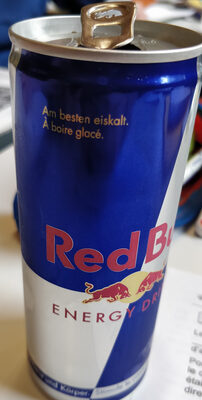
Barcode: 90162909
Red Bull 250ml
HALAL
📝 Reason: Red Bull 250ml does not contain any explicitly Haram E-codes or ingredients such as pork, alcohol, or those listed as Haram (E120, E124, E354, E999). Most ingredients are Halal or mineral/plant-based, e.g., water, sugars, acids, taurine. However, ‘vitamins’ and ‘flavors’ might derive from animal or alcohol sources and without exact sourcing or Halal certification, they are classified as Doubtful (Quran 2:173, IFANCA). Based on the strict rules, the entire product should be marked as Doubtful if any ingredient is Status=2. If flavors and vitamins can be confirmed as plant/synthetic origin, the product would be Halal.
🏷️ Category: Beverages And Beverages Preparations, Beverages, Carbonated Drinks, Sodas, Energy Drinks, Sweetened Beverages
📄 Certificates: Made In Swiss, Vegetarisch
Ingredients:
Details
Understanding the Halal Status of Red Bull 250ml
Many energy drink enthusiasts wonder about the Halal status of popular beverages like Red Bull 250ml. With an increasing demand for Halal-certified products, it’s crucial to analyze the ingredients and their sources. According to our research, Red Bull 250ml is classified as HALAL, but there are some nuances we must explore.
Ingredients Breakdown
The main ingredients in Red Bull 250ml include:
- Water: Water is inherently Halal unless contaminated, making it a safe ingredient.
- Sucrose: Derived from plants, typically sugar cane or beet, sucrose is generally considered Halal unless processed with animal products, which is rare in beverages.
- Glucose: This sugar is usually sourced from plant starches, supporting its Halal classification.
- Acidifier (Citric Acid): Typically derived from microbial fermentation or plants, citric acid is Halal.
- Carbonic Acid: Used to create carbonation, this compound is secured as Halal as it contains no animal-derived ingredients.
- Taurine (0.4%): Although commonly derived from animal sources, taurine in energy drinks like Red Bull is synthetically produced today, thus Halal.
- Acidity Regulators (Sodium Carbonates, Magnesium Carbonates): Both are mineral-based and deemed Halal.
- Caffeine (0.03%): This ingredient is plant-extracted or synthesized, qualifying it as Halal.
E-Numbers and Doubtful Ingredients
The product also contains vitamins and flavors that warrant closer examination:
- Vitamins (Niacin, Pantothenic Acid, B6, B12): Some vitamins, particularly B12, may be derived from animal sources or involve animal-based carriers, leading to a classification of Doubtful unless confirmed as synthetic or plant-derived.
- Flavors: Both natural and artificial flavors may originate from animal sources or alcohol unless otherwise specified, placing them in the Doubtful category.
Understanding these classifications is vital for consumers adhering to Halal dietary laws. As per Quran 2:173, foods rendered doubtful require a closer look.
Halal Certification and Brand Context
Red Bull is manufactured in Switzerland, where stringent food safety and quality regulations apply. However, the global nature of its supply chain means that while the product is primarily Halal, consumers should remain informed about potential cross-contamination. In terms of Halal certification, it is essential to have documentation confirming that all ingredients meet Halal standards.
The categories under which Red Bull classifies are extensive, including Beverages, Carbonated Drinks, Energy Drinks, and more. This diversity underlines the brand’s wide appeal to various consumer groups, especially those seeking Halal options.
Conclusion
In conclusion, while Red Bull 250ml is primarily categorized as Halal, the presence of uncertain ingredients, such as vitamins and flavors, casts a shadow of doubt. To ensure compliance with Halal dietary laws, consumers are encouraged to verify the sourcing, especially for these ingredients. The best practice would be to seek Halal certification directly from the manufacturer or trusted Halal certification bodies such as IFANCA that can ensure each component is compliant with Islamic dietary regulations.
